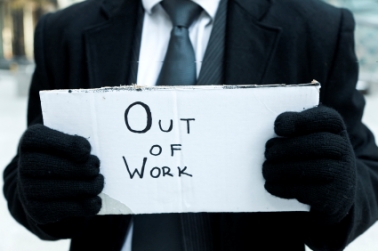How does losing your job affect your car insurance?
Kathryn Hawkins
If you lose your job, money is likely to be tight for a while. Unfortunately, your car insurance company may choose that time to hike your premium.
That’s certainly the case in the United Kingdom. A study commissioned by the BBC found that car insurance premiums for unemployed drivers averaged 30 percent more than those for employed drivers because unemployment was seen as an insurance risk. According to the study, unemployed people were likely to travel more in search of work, and were less likely to properly maintain their vehicles than employed individuals, leading to a rise in claims.
So how does job loss affect car insurance premiums on this side of the Pond? It depends. Under certain circumstances, your rates may go up. But in others, they might stay the same or even go down.
Why nothing might change
Loretta Worters, a spokeswoman for the nonprofit Insurance Information Institute, says you aren’t obligated to tell your insurance company about a job loss. Keep paying your premiums and, chances are, your insurance company never will know about your employment status. In this case, there shouldn’t be any change to your insurance premium.
 Why your premiums could go down
Why your premiums could go down
In some situations, it may even be to your benefit to report a job loss. If you drove long distances to work but won’t be driving as much while you’re hunting for a job, you can report the change in mileage and may see a lower car insurance premium as a result.
You could see a reduction in your home insurance premiums as well.
“Much like when people retire, if they are home more often, they are more likely to be there if a fire started, and there would be less chance of a burglary happening because a burglar looks for unoccupied homes,” Worters says.
If you’re planning to spend a lot of time on the road seeking new work, potential reductions won’t apply; however, if you plan to do the search from the comfort of home, talk to your insurance agent or company to find out whether discontinuing your commute could cut your insurance costs.
Why your premiums might go up — or why you may be denied insurance coverage
If you don’t find a job for a long period of time, you may suffer a financial hardship that could lead you to miss premium payments. This will harm your credit score — one of many factors that insurers may look at when determining your rates, depending on where you live.
In many cases, credit problems won’t affect your insurance rates. Worters says insurance companies rarely review credit reports of existing customers. “As such, insurers may not know if a dramatic change in anyone’s financial status has even occurred,” she says.
However, if you switch insurers, a poor credit report could subject you to higher premiums or get you rejected altogether. If you are rejected, you have the right to find out the reason if you ask within 60 days, according to the Federal Trade Commission. The insurance company also should tell you where it obtained your credit report; you then can order the credit report and see which factors are hurting your score.
According to Worters, the biggest factors that affect your premium rates or eligibility for insurance are your past payment history (whether bills have been paid on time, debts sent to collections, bankruptcies and other public records) and the amount of credit you owe on various accounts (such as a mortgage, an auto loans or a credit card).
According to a 2012 report from the nonprofit Consumer Federation of America, State Farm’s premiums for drivers with poor credit were as much as 26 percent higher than for drivers with good credit.
Additionally, if your job loss forces you to move into a lower-income area, your premiums also go up once you enter the new ZIP code. The Consumer Federation of America found that premiums for residents of low-income neighborhoods ranged from 8 percent to 94 percent higher than premiums paid by residents of high-income neighborhoods in the same metropolitan areas.
You may qualify for subsidized coverage
If you don’t find a new job quickly, your insurance premiums are likely to zap an already tight budget. Look at options for cutting your costs, such as increasing your deductible or shopping for a new insurer.
If you live in California, Hawaii or New Jersey and your household income is near or below the poverty level, you might be eligible to switch to a state-run low cost insurance program. In Kings County, Calif., for instance, eligible drivers can buy coverage for as little as $231 a year.
While a job loss can seriously stress your finances, you can rest assured that in the U.S., it generally won’t affect your insurance rates as long as you continue paying your premiums on time. If you’re hoping to switch insurance companies, however, consider waiting until you’re back on your feet so that your current financial situation doesn’t affect your insurance rating.
